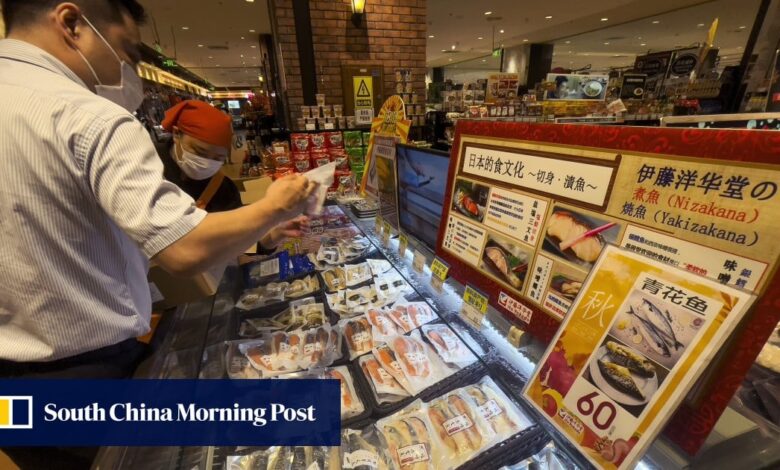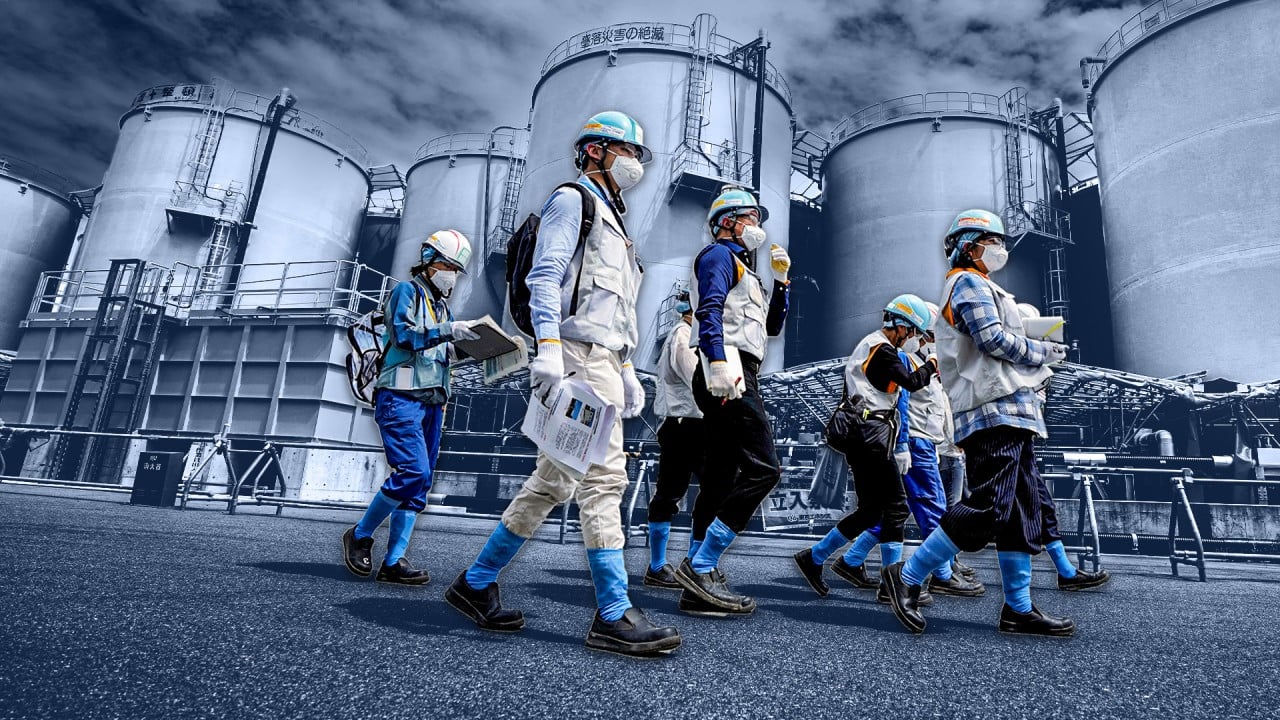US backs Japan against China’s Fukushima stance with sushi and sake

[ad_1]
Mike Gallagher, a Republican of Wisconsin and chair of the committee, called Beijing’s actions “nothing more than economic coercion directed at Japan designed to hurt Japan’s economy”.
China’s ban was “built on a foundation of falsehoods” about the safety of Japanese seafood, he said during the event that featured sushi made with fish imported from Japan.
On the same day, Chinese customs data was released showing that China’s seafood imports from Japan decreased 67.6 per cent from a year earlier in August.
The International Atomic Energy Agency has said that the treated waste from Fukushima would have a “negligible” impact on people and the environment and that Japan’s actions were “consistent with relevant international safety standards”.
Why do many scientists oppose Fukushima radioactive waste discharge?
Why do many scientists oppose Fukushima radioactive waste discharge?
But other groups, like Greenpeace Japan and the US-based National Association of Marine Laboratories, raised concerns ahead of the release, noting limited radiological data disclosures and uncertain long-term effects.
Earlier on Monday, Lee Jae-myung, leader of the main opposition party in South Korea, was hospitalised after a hunger strike in protest against Seoul’s policies, including its failure to protest against the Fukushima waste water release.
Also present at Monday’s event was Tomoaki Ishigaki, Congressional affairs minister at the Japanese embassy in Washington; Michael McCaul, Republican of Texas and chairman of the House foreign affairs committee; and Judy Chu, Democrat of California and chair of the Congressional Asian Pacific American Caucus.
Gallagher and Raja Krishnamoorthi, an Illinois Democrat and the select committee’s ranking member, issued a statement last week calling on the US to consider boosting Japanese seafood imports and working with Japan to increase capacity for seafood processing outside China.
The US State Department has previously voiced support for Japan’s actions, noting that Tokyo has been “open and transparent” in seeking to responsibly manage the Fukushima Daiichi site and the eventual release of treated water.
Ahead of the release, US Secretary of State Antony Blinken said that Washington was “satisfied” with Japan’s plan.
And in the days after the release, US ambassador to Japan Rahm Emanuel visited the Fukushima region to show his support, while blasting China for its “baseless political and economic actions against Japan”.
Last year, Japan’s seafood exports were worth 387 billion yen (US$2.6 billion), according to official Japanese data. Sales to mainland China and Hong Kong accounted for more than 40 per cent of the total.
“They don’t know what they’re missing right now,” Gallagher said, referring to the plates of sushi spread out before him.
[ad_2]
Source link






